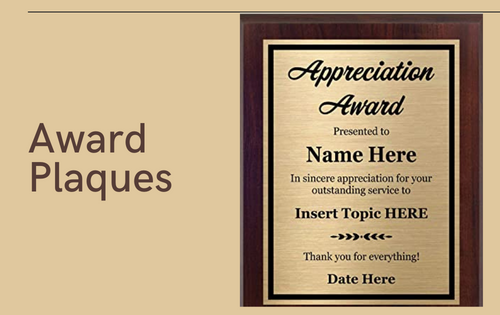-
What is a Christian Counselor Certification Program?
Christian counseling combines psychological principles with spiritual beliefs to provide compassionate and faith-based support to individuals seeking guidance. A Christian Counselor Certification program equips aspiring counselors with the necessary skills and knowledge to effectively integrate these two components in their practice.
Overview of Christian Counselor Certification Programs
A Christian Counselor Certification program is a specialized training course that focuses on the unique aspects of providing faith-based counseling services. These programs are designed to educate counselors on integrating biblical principles and teachings into their therapeutic approaches, enabling them to address clients’ emotional, mental, and spiritual needs.
The American Institute of Health Care Professionals (AIHCP) offers a comprehensive Christian counselor certification program. This program is designed for individuals who wish to become certified as Christian counselors and integrate their faith into the practice of counseling. The coursework covers all of the core topics in an accredited counseling degree program.
Key Components of a Certification Program
While specific curricula may vary between programs and institutions, most Christian Counselor Certification courses include the following components:
Foundations of Christian Counseling: This module covers the history and development of Christian counseling, its distinctives from secular counseling, and the integration of theology and psychology.
Biblical Studies: To effectively apply biblical principles in counseling, students must have a strong understanding of Scripture. This component delves into the interpretation and application of key biblical passages relevant to counseling.

Counseling Theory and Techniques: Students learn about various counseling theories, models, and techniques, with a focus on Christ-centered approaches. This includes studying cognitive-behavioral therapy, solution-focused therapy, and other evidence-based methods within a Christian framework.
Ethical and Legal Issues: Counselors must adhere to strict ethical guidelines and legal requirements. This component addresses the specific ethical considerations and legal responsibilities for Christian counselors.
Supervised Practicum: Hands-on experience is essential for developing counseling skills. Most programs require students to complete a certain number of supervised clinical hours, allowing them to practice their skills in real-life situations under the guidance of experienced professionals.
Benefits of a Christian Counselor Certification
Earning a Christian Counselor Certification offers several benefits for both counselors and their clients:
Enhanced Skills and Knowledge: Certification programs provide in-depth training on integrating faith and psychology, equipping counselors to effectively address clients’ needs from a holistic perspective.
Credibility: A certification from a recognized organization demonstrates a counselor’s expertise and commitment to the field, instilling confidence in both clients and fellow professionals.
Networking Opportunities: Many certification programs offer access to professional networks, which can lead to valuable connections and opportunities for collaboration.
Ongoing Professional Development: Certified Christian counselors often have access to resources and continued education programs, ensuring they stay up-to-date on the latest research and best practices in the field.
Conclusion
A Christian Counselor Certification program is an essential step for those looking to specialize in faith-based counseling. By providing comprehensive training on the integration of psychological principles and Christian beliefs, these programs equip counselors with the tools needed to effectively support their clients on their journey towards healing and growth. With a solid foundation in both theology and psychology, certified Christian counselors are uniquely positioned to make a meaningful impact on the lives of those they serve.
-
A Beginner’s Guide to Inventing
Do you have a creative and innovative mind, brimming with ideas that could potentially revolutionize the world? If you’ve ever wondered how to channel that energy into inventing and how to start inventing you’re in the right place. In this short article, we’ll explore the essential steps to kick-start your inventing journey.
Identify a problem or need: The foundation of any great invention lies in identifying a problem or unmet need. Start by observing the world around you and take note of everyday issues you or others may face. Think about how you can create a solution that addresses those pain points.
Conduct thorough research: Before diving into the invention process, research existing solutions and products in the market. This will help you understand the competition, as well as any potential patent or intellectual property issues. Familiarize yourself with the industry, target audience, and trends to gain insights that will guide your invention.
Brainstorm and sketch ideas: Once you’ve identified a problem and conducted research, it’s time to let your creative juices flow. Brainstorm various ideas and potential solutions, no matter how outlandish they may seem. Sketch your concepts, create diagrams, and write down your thoughts to help visualize your ideas and refine them.

Develop a prototype: Transform your idea into a tangible, working prototype. This step is crucial in determining the feasibility of your invention and identifying potential improvements. Depending on the complexity of your idea, you may need to collaborate with engineers, designers, or other experts to bring your invention to life.
Test and refine: Test your prototype extensively to identify any flaws, weaknesses, or areas for improvement. Gather feedback from your target audience and make necessary adjustments to enhance your invention’s functionality, design, and user experience.
Protect your intellectual property: Before sharing your invention with the world, protect your intellectual property by applying for a patent, trademark, or copyright. Consult with an intellectual property attorney or a patent agency, such as InventHelp, to determine the best course of action and secure your rights.
As you can see from InventHelp reviews and testimonials online, InventHelp is a great resource for inventors who are looking to get their ideas off the ground and into the marketplace. The company has helped thousands of people bring their products to life, and they can assist you as well. Contact InventHelp today to learn more about your options.
Conclusion
Embarking on the journey of inventing can be both exhilarating and daunting, but with dedication, persistence, and the right approach, you can turn your innovative ideas into reality. Remember, every great invention started with a single idea, and yours could be the next game-changer. So, unleash your inner inventor and start making a difference today.
-
Common Issues With Google AdWords Campaigns
Google AdWords can be an effective marketing tool for businesses looking to boost their online presence and increase conversions. However, managing a successful AdWords campaign is not always a walk in the park.
Many advertisers face common complications that can hinder the performance of their campaigns. In this article, we’ll dive into these complications and provide actionable solutions to help you overcome them and maximize your return on investment (ROI).
Poor Keyword Selection and Management
One of the most critical aspects of a successful Google AdWords campaign is selecting the right keywords. Choosing irrelevant or overly generic keywords can waste your budget and lead to low-quality traffic.
Solution: Perform thorough keyword research using tools like Google’s Keyword Planner or other third-party tools. Identify relevant, high-intent keywords with a reasonable search volume and competition level. Regularly review and update your keyword list to refine your targeting and eliminate poorly performing keywords.
Low Quality Score
Your Quality Score is a Google metric that assesses the relevance and quality of your keywords, ads, and landing pages. A low Quality Score can lead to higher costs per click (CPC) and lower ad rankings. It can even lead to your Google ads not showing at all. The higher your Quality Score, the lower your CPCs will be and the better chance you have of ranking highly in Google’s search results.
Solution: Improve the relevance of your keywords, ad copy, and landing pages. Ensure your ad copy includes the targeted keywords and provides a clear, compelling message to your audience. Make sure your landing pages are user-friendly, load quickly, and contain relevant content that matches the user’s search intent.

Limited Ad Creatives and Variations
A lack of variety in ad creatives can lead to ad fatigue, where users become less responsive to your ads over time.
Solution: Create multiple ad variations with different headlines, descriptions, and calls to action (CTAs). Regularly test and optimize your ads to identify the best-performing creatives and replace underperforming ones.
Inadequate Conversion Tracking
Tracking conversions is crucial to measure the success of your AdWords campaign and optimize it for better performance. However, many advertisers fail to set up conversion tracking properly, leading to inaccurate data and poor decision-making.
Solution: Set up conversion tracking in your Google Ads account and ensure it’s correctly implemented on your website. Monitor your conversion data regularly to identify trends and optimize your campaigns accordingly.
Failure to Optimize Bids and Budget
Many advertisers make the mistake of setting their bids and budgets without proper optimization, which can lead to wasted ad spend and missed opportunities.
Solution: Regularly review and adjust your bids based on the performance of your keywords, ad groups, and campaigns. Utilize automated bidding strategies like Target CPA or Target ROAS to help optimize your bids and budget for better performance.
Conclusion
Overcoming common complications in your Google AdWords campaign is crucial to maximizing your ROI and achieving your marketing goals. By addressing these issues and implementing the suggested solutions, you’ll be on your way to a more successful and cost-effective AdWords campaign.








